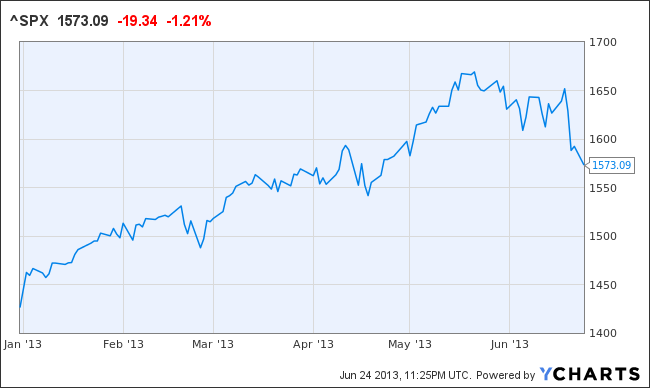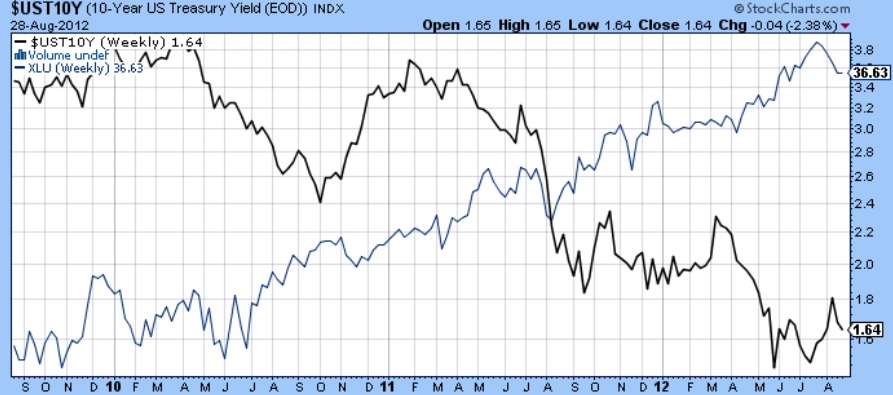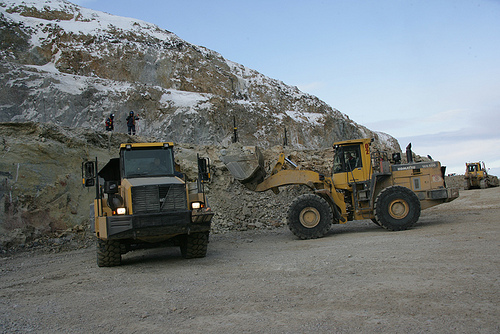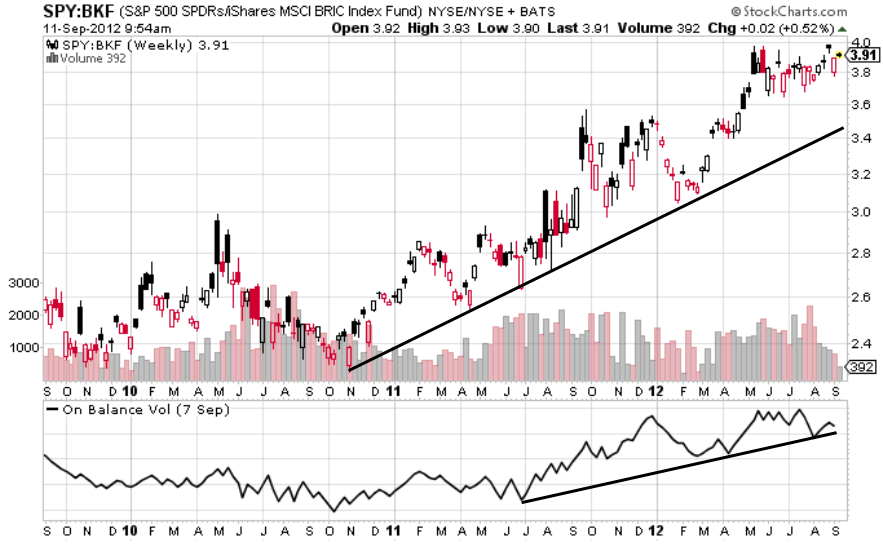U.S. investors have seen steep market declines after Fed Chairman Ben Bernanke telegraphed the central bank’s intentions to start winding back bond purchases if the economic recovery stays on track. The S&P 500 Index (SPX) is off about 5.8% since its record high back on May 21.
Yet if American investors really want something to worry about, they should look eastward toward China, where a new regime led by President Xi Jinping and Premier Li Keqiang are cutting off credit to China’s major state-owned banks and trying to cool off growth to prevent a boom-bust scenario. That campaign may well be a far bigger negative for U.S. corporate earnings over the next couple of years than the Fed’s gradual withdrawal of monetary stimulus.
American investors with stakes in Chinese companies or ETFs linked to mainland markets have been spooked by the credit squeeze in China’s banking system. Under pressure from Beijing, the People’s Bank of China has avoided pumping huge amounts of liquidity into the country’s money markets in an attempt to restrain bank lending.
In China, first-quarter GDP growth of 7.7 percent was well below the 8 percent predicted by a Bloomberg survey of economists and even lower than the 7.8 percent rate for all of last year (which in turn, was China’s slowest growth in 13 years). Consider, too, that Goldman Sachs (GS), JPMorgan Chase (JPM), and Royal Bank of Scotland (RBS) have pared back their 2013 estimates to 7.8 percent.
U.S. investors that have speculated in Chinese ETFs or the ADRs of popular Chinese stocks like mobile security software developer NQ Mobile (NQ), property developer SouFun Holdings (SFUN) and real estate Internet play E-House China Holdings (EJ) have already felt the shock waves coming from the China slowdown.
However, if the China slowdown is prolonged some big blue chip stocks in the U.S. may well feet the pinch. Companies such as Boeing (BA), Caterpillar (CAT), and KFC parent Yum! Brands (YUM), and General Motors (GM) get a significant portion of their revenue from mainland consumers.
A China that manages a slowdown that moderates growth, burns off excesses in banking lending and property speculation and sets the stage for stronger, more sustainable growth later is the best scenario, though U.S. companies would lose some business short-term.
The worry is that China fails to slow things down, overheats and crashes. China bears like hedge fund investor Jim Chanos think the country is heading toward a major bust, not unlike the aftermath of the Japanese bubble collapse in the early 1990s—only a lot worse. Check out this presentation Chanos gave in April that can be viewed here on scribd.com.






